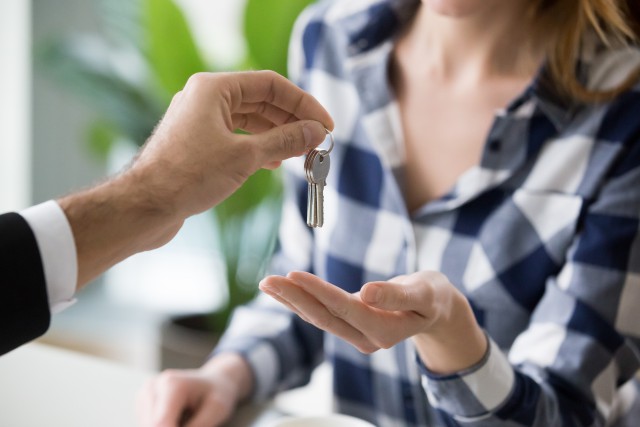HOUSE prices may be coming down but to secure a typical mortgage, first-time buyers still need to save over £25,000.
It now costs an average £259,153 to get on the property ladder, according to the latest data from Nationwide.
First-time buyers can buy their first home without a deposit – here’s how
While this is £14,500 lower than a year ago, buying still means years of saving for most would-be homeowners.
Record high rents and the rising cost of living have made it even harder to save enough to buy a first home.
A survey from Skipton Building Society found that two out of five renters said house prices in their area are "rising too quickly for them to keep up".
One in three told the mutual lender they are struggling to save due to increased rent – and are now having to find an extra £1,000 per year for their landlord.
And with the average two-year mortgage rate now over 6%, for many the dream of homeownership has been fading fast.
But it is possible to make your hard-saved cash go further and secure a mortgage you can afford to repay.
From schemes designed to give first-time buyers a helping hand to 100% mortgages – here’s the full list of what’s available.
The 100% mortgage
It’s normal to expect to save a deposit that’s between 5% and 10% of the property’s price.
But for many first-time buyers it’s too big a sum to be realistic.
That’s why several of the big banks and building societies allow first-time buyers to borrow the full amount it costs to buy their home.
These deals are often referred to as 100% loan-to-value mortgages – because you don’t need any deposit to buy.
But in almost all cases, a family member will need to help out in some way.
Some deals need parents to agree to guarantee repayments, meaning the lender will need to check their income to make sure they can afford to.
The guarantee only kicks in if you can’t make a payment for any reason.
There are also a number of 100% family mortgages – some require a family member or close friend to deposit some savings with the lender for a fixed period.
Others will lend you 100% of the home’s purchase price but will want to take a "charge" on a family member’s home in place of a deposit.
This means that no cash changes hands but should things go wrong, the lender will be able to get their money back from your relative.
Before that happens, your home would be sold and any money you still owed the lender would be taken from your family member’s home.
Either they would have to borrow money to pay back the lender or they would, in the worst case scenario, have to sell to cover any remaining debt.
There is a very serious health warning that comes with taking a 100% mortgage.
If house prices fall, you could end up owing the bank more than your home is worth.
That only matters if you need to sell, or when you need to remortgage to a different lender.
But it can cause a major headache.
Back in 2008 when the global economy crashed, some people saw their home’s value plummet.
It resulted in a wave of mortgage prisoners stuck in their homes because they couldn’t afford to pay their lender back.
Even though that was 15 years ago, there are still some people trapped in this position – known as negative equity.
The 100% mortgage for renters
This is the newest type of mortgage that lets you borrow without a cash deposit.
In May, Skipton Building Society launched its Track Record 100% mortgage available to renters who were buying their first ever property.
The only catch is that the amount you can borrow is capped as your monthly repayment cannot be more than you currently pay in rent.
Earlier this week the lender confirmed that renters who owned a property more than three years ago can also apply for the deal.
To qualify you need to show you have a strong track record of paying your rent on time and in full.
The five-year fixed rate mortgage is currently 6.19% and can be taken over a maximum term of 35 years.
You’ll still need some savings as there are other costs involved in buying and moving house.
These include legal fees, valuation fees the cost of a








